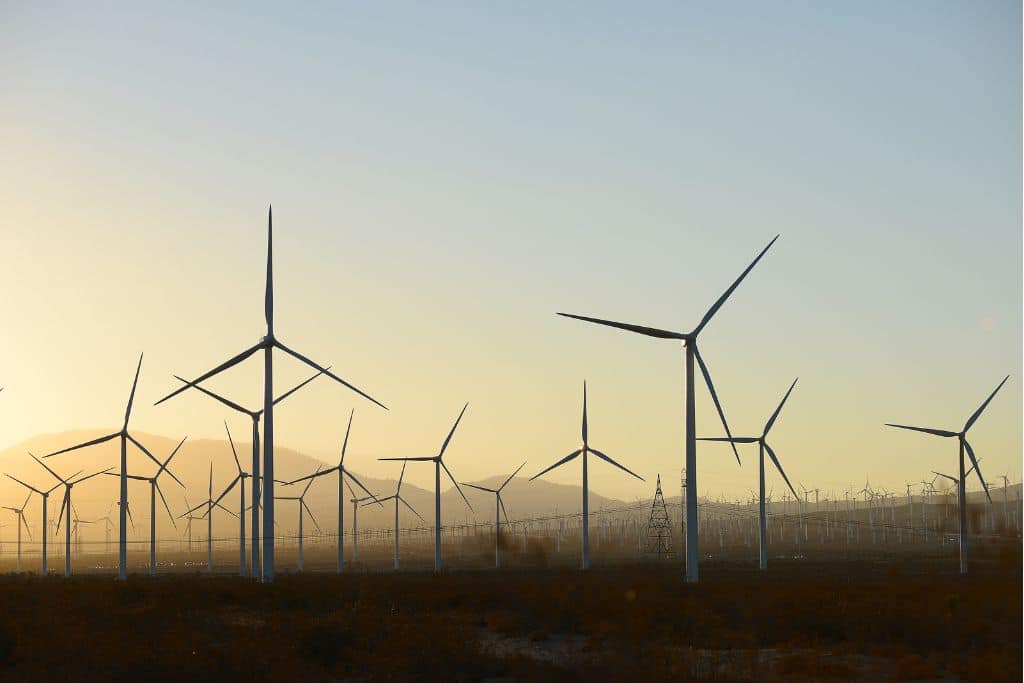Former prime ministers Boris Johnson and Liz Truss joined the Tory rebellion against the ban on new onshore wind farms on Wednesday, backing Simon Clarke’s amendment to allow the development of new wind projects.
—
Tory MPs are putting pressure on UK Prime Minister Rishi Sunak to drop the government’s longstanding de facto ban on new onshore wind farms in England.
Both former prime ministers Boris Johnson and Liz Truss have joined the Tory rebellion among 20 other Conservative MPs, signing an amendment tabled by Simon Clarke, who served as a minister in both governments, to allow onshore wind farm applications. The amendment, presented on Wednesday, plans a revision of the government’s National Planning Policy Framework to permit the development of new onshore wind farms.
Delighted to have the backing of @BorisJohnson and @trussliz, together with MPs from right across the Conservative Party, for my amendment to allow onshore wind where (and only where) there is community consent. A pro growth, pro green policy at a time when we need both.
— Simon Clarke MP (@SimonClarkeMP) November 24, 2022
The clampdown on new onshore wind projects was introduced by David Cameron in 2015. At the time, the then-prime minister justified his decision to ban subsidies by saying that the country had enough wind projects. At the time, wind accounted for 10% of the total energy mix. Last year, the UK obtained about 17% of its primary energy from wind, which is now its largest source of renewable electricity and second only to nuclear among low-carbon sources.
The Labour Party plans to at least double onshore and quadruple offshore wind, one of the cheapest and most efficient sources of renewable energy, by 2030. Besides its financial advantages, Clarke argues that wind would also improve the country’s power resilience during a global energy crisis prompted by Russia’s invasion of Ukraine.
The rebellion comes just weeks after Liz Truss’ highly-contentious plan to curb the rapid growth of solar projects by banning the installation of panels on farming land.
You might also like: 4 Indisputable Advantages of Wind Energy
The UK has pledged to reach net-zero greenhouse gas emissions by 2050. Last year, Boris Johnson set a target to have all Britain’s electricity come from clean sources by 2035, meaning the government would need to cut carbon emissions by 78%. During his time in office, Johnson also revised Cameron’s ban, making it easier to obtain for constructors to obtain subsidies, but failed to lift all planning restrictions.
Speaking at COP27 in November, Sunak said he wanted to “continue the leadership that our country has shown in tackling climate change.” That same week, however, he indicated that he would keep in place the government’s ban, saying that he would “stick with what we said in our manifesto” and adding that he is focused on “more renewables, more offshore wind and more nuclear”.
Emissions from energy in the country dropped about 73% between 1990 and 2021 as a result of more spending on renewable and nuclear power as well as the closure of coal-fired power stations. Despite the relative success, the UK Committee on Climate Change (UKCCC) has often criticised the government for the lack of a clear emission reduction strategy. Earlier this year, a court ruled that the country’s net-zero plan was in breach of the law and ordered the government to outline a more detailed plan on how it plans to reach carbon neutrality by March 2023.
You might also like: What’s Wrong With the UK’s Plan to Ban Solar Projects From Farmland?


















